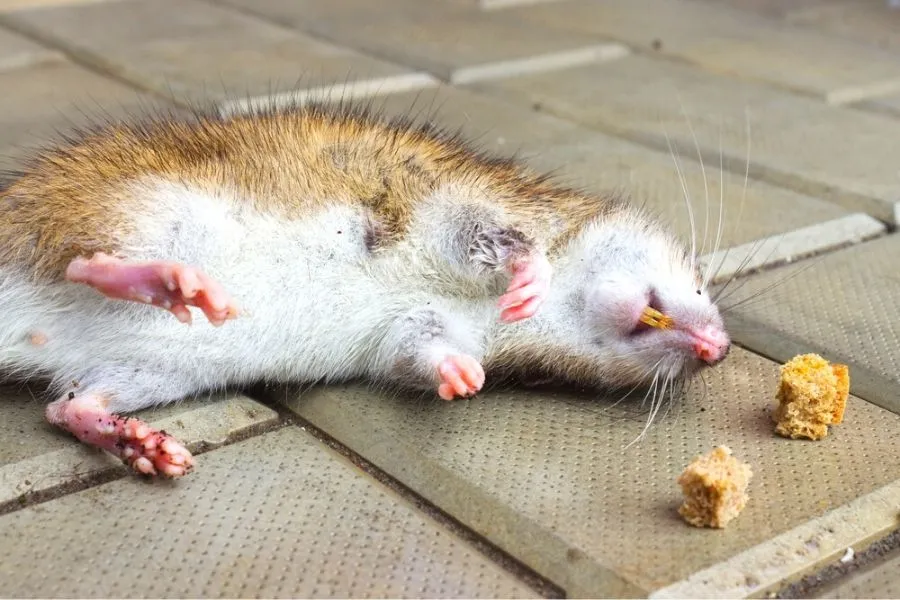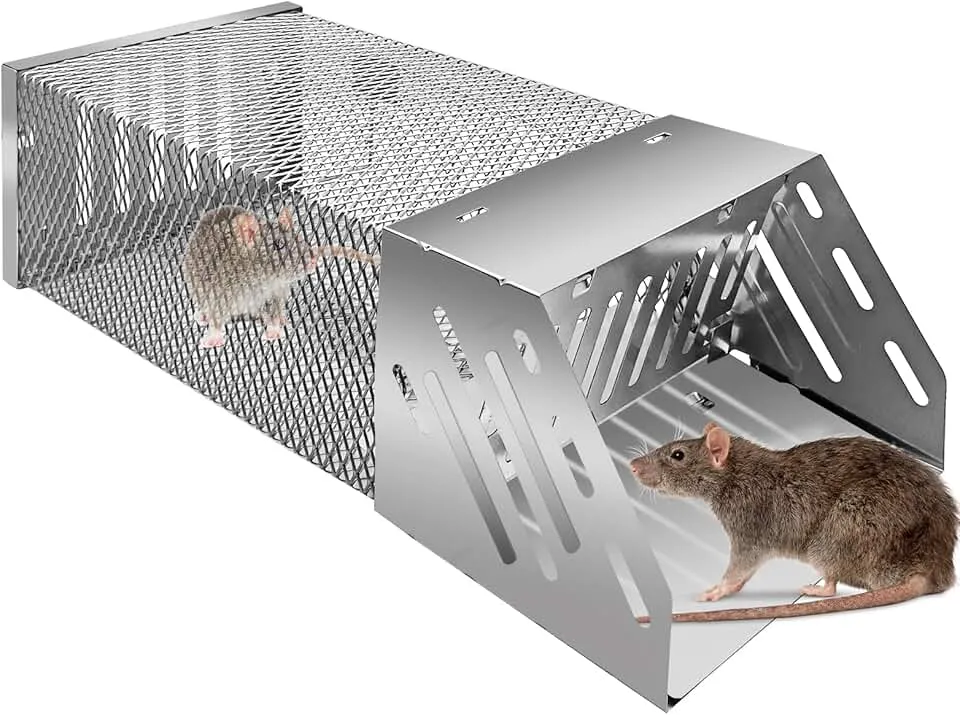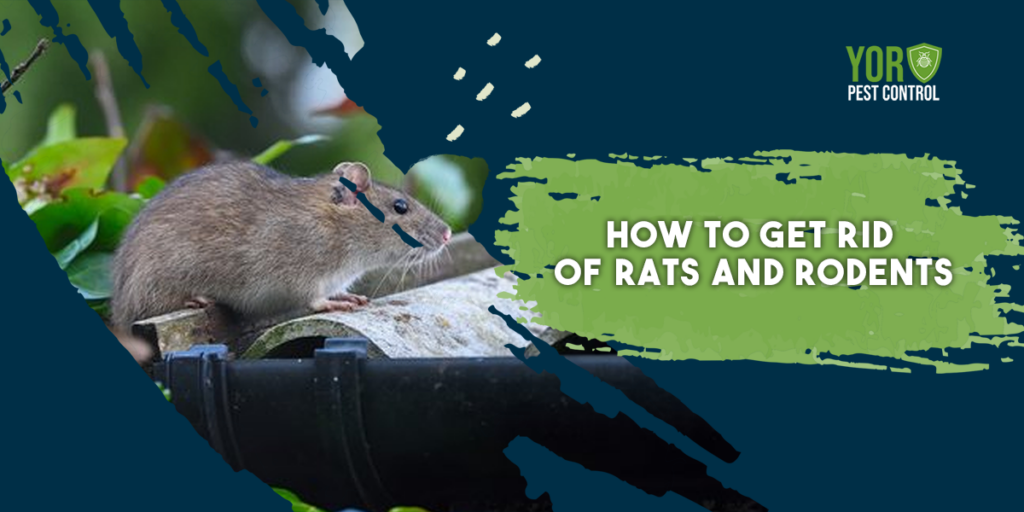Rats and rodents are unwanted guests. They can harm your health, damage your home, and disrupt your peace of mind. Act quickly, whether you see one mouse in your kitchen or a whole rat infestation. This guide will help you get rid of rodents. It will compare the effectiveness of rat poison and traps. You’ll also learn about natural methods, like smells that rats hate. Plus, we’ll give you practical tips to prevent them. You’ll learn how to free your space from rodents. You’ll also know when to call experts for help.
Methods to Get Rid of Rats and Rodents
The first step is choosing the right removal strategy. Here’s a breakdown of the two most common methods:
Rat Poison
The chemicals in the poison disrupt blood clotting or attack the nervous system, killing rats within 2–5 days. To get rid of rats fast, you can use rat traps alongside rat poison. Rat poison Tesco is an effective option, or you can opt for professional pest control for quicker results.
Best for: Large infestations in hidden areas, such as attics, wall cavities, or under floorboards.
Pros:
- Eliminates multiple rats at once.
- Low maintenance—no daily monitoring.
- Reaches nests in hard-to-access zones.
Cons:
- There is a high risk to kids, pets, and wildlife (via accidental ingestion or secondary poisoning).
- Dead rats often decompose in hidden spots, causing foul odours.
- Delayed results mean rats continue to roam until they die.

Rat Traps
Rat traps are an effective way to control rodent infestations. You can find various types of traps, including snap traps, electric traps, and live-catch traps. They work quickly and are safe for homes with pets and kids when used correctly.
Types:
- Snap Traps: Classic, cost-effective, and lethal.
- Electric Traps: Kill instantly with high-voltage shocks.
- Live Traps: Capture rodents alive for humane release.
- Glue Traps: Sticky surfaces immobilise rats (controversial due to cruelty concerns).
Best for: Small to moderate infestations in visible areas, such as kitchens, basements, or garages.
Pros:
- Immediate results—you know when a rat is caught.
- It is safer for homes with kids/pets (if placed strategically).
- There is no risk of hidden carcasses.
Cons:
- Labour-intensive—requires daily checking and resetting.
- It is less adequate for large infestations unless used in bulk.
- Some traps involve disturbing cleanup.

Rat Poison vs. Traps: Which Should You Choose?
|
Factor |
Rat Poison |
Rat Traps |
|
Speed |
2–5 days |
Instant (if a trap is triggered) |
|
Safety |
Risky for kids/pets |
Safer (especially live traps) |
|
Infestation Size |
Large, hidden infestations |
Small, localised issues |
|
Cleanup |
Difficult (hidden carcasses) |
Direct disposal |
- Use traps for safer, immediate results in visible areas.
- Reserve poison for severe infestations in inaccessible zones
How to Get Rid of Rats in Home?
Indoor infestations require precision to avoid contamination and recurrlocaliseds:
- Locate Entry Points:
- Inspect walls, pipes, vents, and doors for gaps >15mm (a pencil-sized hole is enough for rats!).
- Seal cracks with steel wool and caulk.
- Set Traps Strategically:
- Place snap or electric traps along walls, behind appliances, and near areas where droppings are found.
- Avoid placing traps in open areas—rats prefer to hide near walls.
- Sanitise Thoroughly:
- Store pantry items in airtight containers.
- Clean spills immediately, secure trash bins and avoid leaving pet food out overnight.
- Use Natural Repellents:
- Soak cotton balls in peppermint oil and place them near entry points.
- Spray vinegar-water mixtures to erase scent trails.
- Monitor and Adapt:
- Check traps daily and relocate them if you don’t see any results in 3–4 days.
Rid Of Rats with Smell: Smells That Rats Hate
Rats rely heavily on their sense of smell, making certain scents powerful deterrents. Here are the top smells rats can’t stand:
- Peppermint Oil
- Ammonia mimics
- Cloves and Cayenne Pepper
- Vinegar
When is the right time to call Rodent Exterminator?

DIY methods work for minor issues, but severe infestations demand expertise. If you keep trying but get no good results, you need to see a pro. Professionals can solve your rodent problems effectively and give you peace of mind. Contact Yor-Pest Control for serious infestations or professional assistance.
- Traps/poison fail after 2–3 weeks.
- You hear scratching in the walls or spot-chewed wires.
- The infestation poses a risk to your family’s health.
Why Choose Professionals?
- Commercial-Grade Solutions: Stronger poisons and advanced traps.
- Expertise: Identify nests, entry points, and behavioural patterns.
- Long-Term Prevention: Rodent-proofing services to seal your home.
Why Rats and Rodents Are Dangerous
Rats and mice aren’t just a headache—they’re destructive pests with serious consequences:
- Health Risks: Spread diseases like leptospirosis, hantavirus, and salmonellosis through droppings, urine, and bites.
- Property Damage: Chew through wiring (risking fires), insulation, pipes, and structural wood.
- Rapid Infestations: A single pair of rats can produce 150 offspring a year, making early action critical.
Conclusion
Rats and rodents reproduce quickly, so delaying tactics only worsen the problem. Whether you opt for traps, poisons, or natural deterrents—like the smells rats hate—prioritise safety and prevention. For stubborn infestations, trust Yor-Pest Control to eliminate rodents efficiently and safeguard your home.
Need Immediate Help? Book a form or call 07951 392 424 for expert rodent control services. Don’t let rats compromise your peace of mind—we’re here to prioritise.

